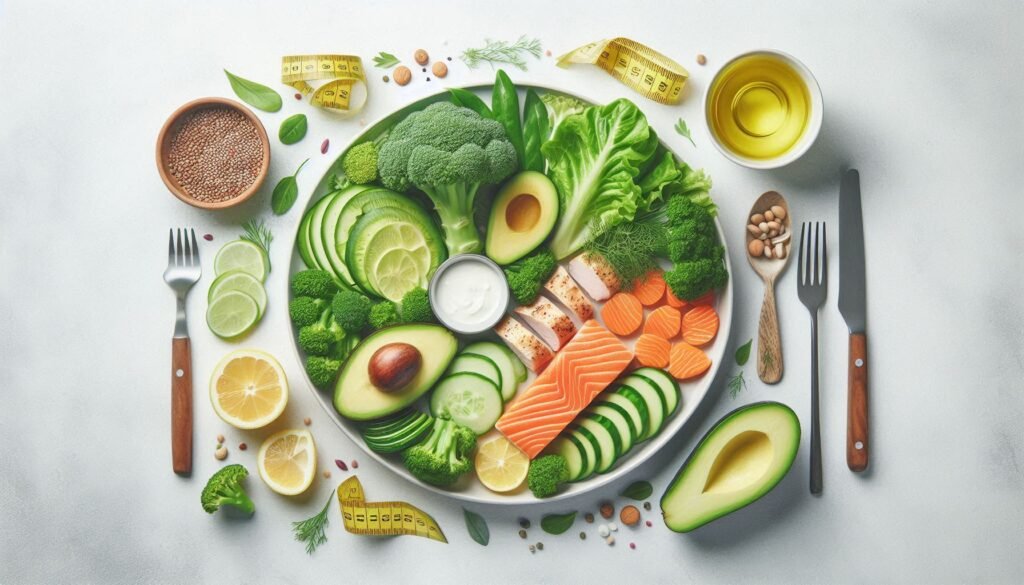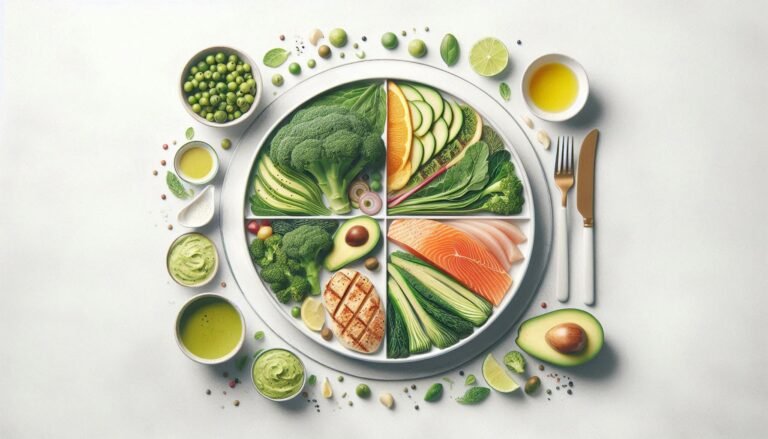Achieving sustainable weight loss requires more than just cutting calories—it involves making smart food choices that fuel your body while helping you shed unwanted pounds. But with so much conflicting information out there, it can be difficult to determine which foods are truly good for weight loss. In this post, we’ll dive into the best foods for weight loss that can help you meet your goals without feeling deprived.
The Role of Nutrition in Weight Loss
Before diving into the specific foods, it’s important to understand the role nutrition plays in weight loss. Your body needs a balance of macronutrients (carbohydrates, proteins, and fats) to function properly. However, for weight loss, choosing nutrient-dense foods—those high in nutrients but low in calories—can make a significant difference.

Top Foods for Weight Loss
1. Leafy Greens
Kale, spinach, and Swiss chard are packed with vitamins, minerals, and fiber, which make them ideal for weight loss. Their high fiber content helps you stay full longer, while their low-calorie density allows you to eat larger portions without consuming many calories.
Pro Tip: Add a handful of spinach to your morning smoothie for an easy, low-calorie nutrient boost.
2. Lean Proteins
Protein is essential for preserving muscle mass and boosting metabolism during weight loss. Chicken breast, turkey, fish, and plant-based proteins like lentils and chickpeas are excellent choices. These foods are filling and help reduce cravings, which can lead to fewer calories consumed overall.
Encouraging Action: Try replacing one meal a day with a lean protein dish to support your weight loss journey.
3. Whole Grains
Unlike refined grains, which can spike blood sugar levels and cause cravings, whole grains like quinoa, brown rice, and oats are high in fiber and help stabilize blood sugar. They also provide long-lasting energy, helping you stay satisfied between meals.
Quick Recipe Idea: Start your day with a bowl of oatmeal topped with fresh berries and a sprinkle of chia seeds for a fiber-packed breakfast.
4. Fruits with High Water Content
Watermelon, oranges, and strawberries are not only hydrating but also low in calories, making them perfect for weight loss. Their high water content helps you feel full, and they also satisfy your sweet tooth without the need for processed sugar.
Sub-keyword: Which fruits are good for weight loss?
5. Nuts and Seeds
Though higher in calories, almonds, chia seeds, and flaxseeds are rich in healthy fats and fiber, which promote satiety. Eating a small amount of nuts or seeds can curb hunger and provide essential nutrients like omega-3 fatty acids and protein.
Pro Tip: Snack on a small handful of almonds or add chia seeds to your yogurt for an extra boost of nutrition.
6. Cruciferous Vegetables
Broccoli, cauliflower, and Brussels sprouts are excellent for weight loss due to their high fiber content and low calorie count. They’re also rich in vitamins and minerals, promoting overall health while aiding in fat loss.
Sub-keyword: Which vegetables are good for weight loss?
7. Healthy Fats
Contrary to popular belief, not all fats are bad. Avocados, olive oil, and fatty fish like salmon provide healthy fats that help your body absorb nutrients and feel fuller longer. These fats also support heart health, making them a valuable addition to a weight loss plan.
Encouraging Action: Drizzle olive oil on your salads or add avocado slices to your meals to enjoy the benefits of healthy fats.
Foods to Avoid for Weight Loss
While focusing on the best foods for weight loss is important, it’s equally essential to know what to avoid. Highly processed foods, sugary snacks, and drinks like soda, candy, and fast food often contain empty calories that can sabotage your weight loss efforts.
Pro Tip: Swap out sugary drinks with water or herbal teas to cut down on unnecessary calories.
Building a Balanced Plate for Weight Loss
To create a sustainable weight loss plan, focus on building balanced meals. A typical weight-loss plate should include:
- Half of your plate filled with non-starchy vegetables (like leafy greens and cruciferous veggies).
- A quarter with lean proteins (like chicken breast or lentils).
- A quarter with whole grains (like brown rice or quinoa).
- A small amount of healthy fats (like avocado or olive oil).
This approach ensures you’re getting the right nutrients without overloading on calories.
The Importance of Consistency
When it comes to weight loss, consistency is key. Incorporating these nutrient-dense foods regularly, along with staying active and hydrating, will gradually lead to long-term weight loss success. Remember that crash diets may lead to quick results, but they’re often not sustainable. Focus on creating habits that you can stick with for life.
Encouraging Conclusion
Weight loss is a journey, and it’s important to approach it with patience and persistence. By incorporating these healthy foods into your diet, you’ll not only see progress on the scale but also feel more energized and motivated to stay on track. Start small by making a few changes to your meals and stick with them. Every step toward healthier eating is a step closer to your goal.


